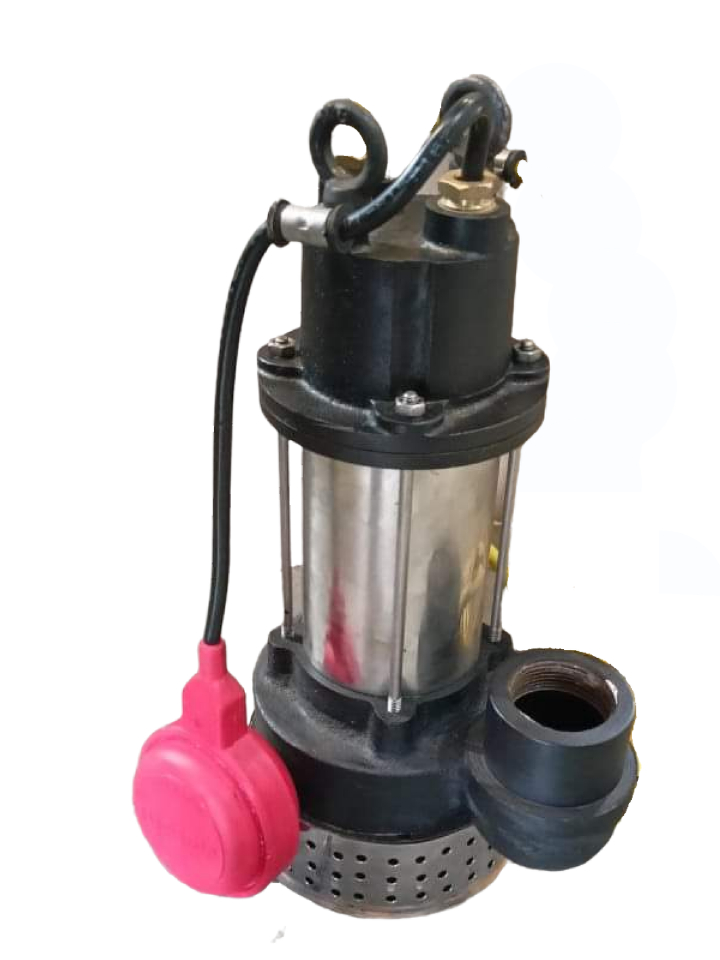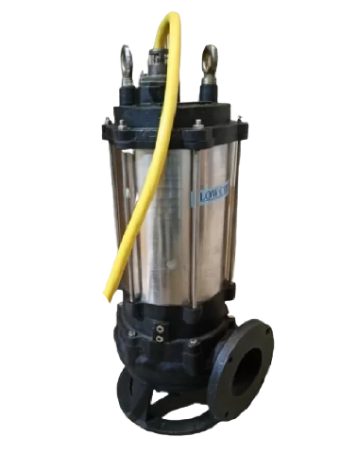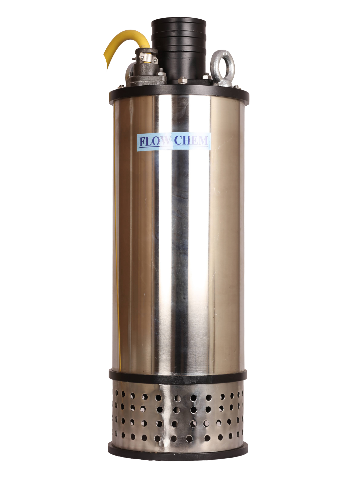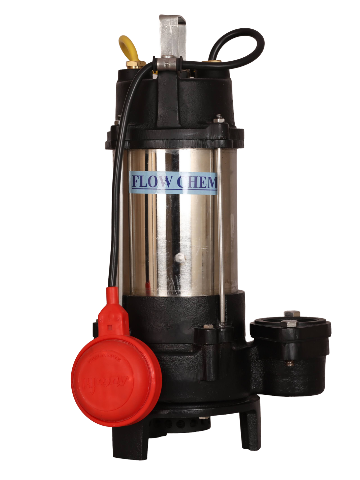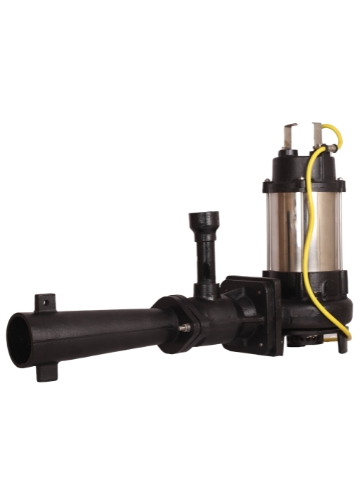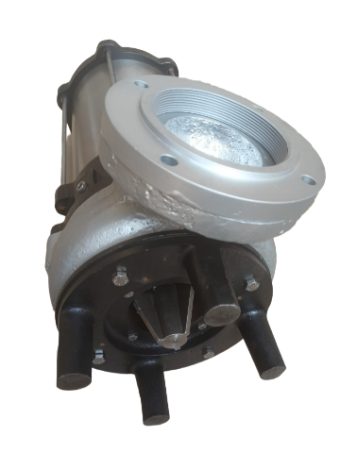How Dewatering Pumps Contribute to Environmental Compliance

Dewatering technologies are integral in industries where water management is critical to both operational success and environmental stewardship. From construction sites to mining operations, the ability to efficiently manage water can dictate the environmental footprint of an industry. The submersible dewatering pump, known for its robust performance in submerged conditions, is at the forefront of this process, ensuring that water is handled in a manner that upholds stringent environmental standards.
Optimizing Water Management with Advanced Pump Technologies
Each industrial sector has its specific challenges and requirements for water management, necessitating a variety of dewatering solutions. Here, the functionality of pumps like the submersible pump 1 hp and the Drainage pump comes into play, tailored to offer precision in water control with a focus on energy efficiency and reduced environmental impact.
Tailored Solutions for Diverse Industrial Needs:
- Mining and Quarrying: In these sectors, the submersible sewage pump and Cutter Pump are indispensable. These pumps handle the abrasive and often contaminated water that can accumulate in mines and quarries, ensuring safe and efficient water removal that complies with environmental regulations.
- Construction: Here, the dewatering pump submersible models are vital. They prevent water accumulation that can undermine the structural integrity of foundations and delay construction schedules. Efficient management of site water also reduces the risk of stormwater runoff, a major source of pollution in urban settings.
- Agriculture: For agriculture, pumps like the submersible pump 1 hp are used to manage irrigation and drainage efficiently. These pumps ensure that water distribution is both adequate and conservative, helping to prevent wasteful water usage and protect local water resources.
Environmental and Regulatory Compliance Through Effective Dewatering Practices
Modern dewatering practices are not just about water removal; they are integrated approaches that consider the environmental impact of such activities. The use of sludge pump and sewage sludge pump in wastewater treatment underscores this point. By handling and treating sludge and sewage effectively, these pumps prevent the release of harmful pollutants into the ecosystem, aligning with both national and international environmental standards.
Advantages of Modern Dewatering Technologies:
- Reduced Environmental Impact: By preventing groundwater contamination and managing stormwater runoff, modern pumps help maintain the ecological balance, ensuring that local wildlife and plant life thrive.
- Compliance with Regulations: Industries are increasingly bound by strict environmental regulations that mandate specific water management practices. The right dewatering technologies ensure compliance, avoiding legal repercussions and fostering sustainable operational practices.
- Energy Efficiency: Newer models of dewatering pumps are designed to be more energy-efficient, reducing the carbon footprint of industrial operations and contributing to broader climate change goals.
Understanding Dewatering Pumps and Their Importance
Dewatering pumps are designed to remove excess water from areas where it may hinder operations or cause damage. Among these, the submersible pump is particularly valued for its ability to operate efficiently under water, making it indispensable in scenarios ranging from simple water transfers to complex flood control projects.
Types of Dewatering Pumps and Their Specific Uses
- Submersible Pumps: These are powerful enough to handle large volumes of water and are typically used in deep water settings like mines or during heavy flooding.
- Cutter Pumps: Equipped with a cutting system to manage fibrous materials, these pumps are ideal for sewage applications.
- Sludge Pumps: Designed to handle thick, viscous sludge or semi-solid materials, these are essential in wastewater treatments.
- Drainage Pumps: Used for clearing water from flat surfaces, making them crucial in urban water management systems.
- Sewage Sludge Pumps: These are specialized for handling sewage effectively, ensuring that waste management processes comply with environmental standards.
The Role of Dewatering Pumps in Environmental Compliance
Effective water management is a critical component of environmental compliance. Dewatering pumps play a pivotal role in preventing ecological degradation by efficiently managing site water in compliance with environmental regulations.
Key Contributions:
- Prevention of Pollution: By managing runoff and preventing overflow, dewatering pumps keep pollutants from entering natural water bodies.
- Groundwater Management: Especially in mining operations, maintaining the water table below certain levels is crucial to prevent contamination of groundwater.
- Efficiency and Energy Savings: Modern dewatering pumps are designed to be more energy-efficient, reducing the carbon footprint of operations.
Advanced Applications in Industry
Each industry presents unique challenges that require specific dewatering solutions, underscoring the versatility and necessity of these pumps in modern industrial applications.
Mining
In mining, submersible dewatering pump are essential for maintaining dry and stable conditions in pits and tunnels. They help mitigate the risk of flooding, which can lead to significant operational disruptions and safety hazards.
Construction
During construction projects, especially in urban areas, managing water efficiently is crucial to prevent delays and structural failures. Submersible pumps and Drainage pump are extensively used to keep excavation sites dry and safe.
Agriculture
For agriculture, efficient water management ensures that water resources are used sustainably. Submersible pump 1 hp units are often used in smaller irrigation requirements to optimize water usage and prevent wastage.
Environmental Benefits and Sustainability
The integration of dewatering pumps in industrial operations brings significant environmental benefits, promoting sustainability and compliance with stringent regulations.
Sustainability Impacts:
- Water Conservation: By recycling and reusing water, dewatering pumps facilitate sustainable water management practices.
- Ecosystem Protection: Effective water management helps protect ecosystems from the adverse effects of uncontrolled water discharge.
- Compliance with Environmental Laws: Many industries are governed by strict environmental laws that mandate specific water management practices. Dewatering pumps enable compliance, helping industries avoid legal issues and potential fines.
Future Trends and Innovations
The future of dewatering technology looks promising, with ongoing advancements aimed at increasing efficiency, reducing environmental impact, and enhancing operational flexibility.
Innovations on the Horizon:
- Smart Pump Technology: Integration of IoT and smart sensors in dewatering pumps to provide real-time data and analytics, enhancing efficiency and predictive maintenance.
- Eco-friendly Materials: Development of pumps using sustainable materials that reduce environmental impact even further.
- Enhanced Energy Efficiency: Continued improvements in pump design to increase energy efficiency and reduce operational costs.
Conclusion
Dewatering pumps are more than just equipment; they are a critical component of modern environmental management strategies. By enhancing efficiency, ensuring compliance with environmental regulations, and promoting sustainability, these pumps play a crucial role in supporting the global shift towards sustainable industrial practices. As industries continue to evolve, the strategic adoption of advanced dewatering technologies will be vital in navigating the challenges of environmental stewardship and operational efficiency.
